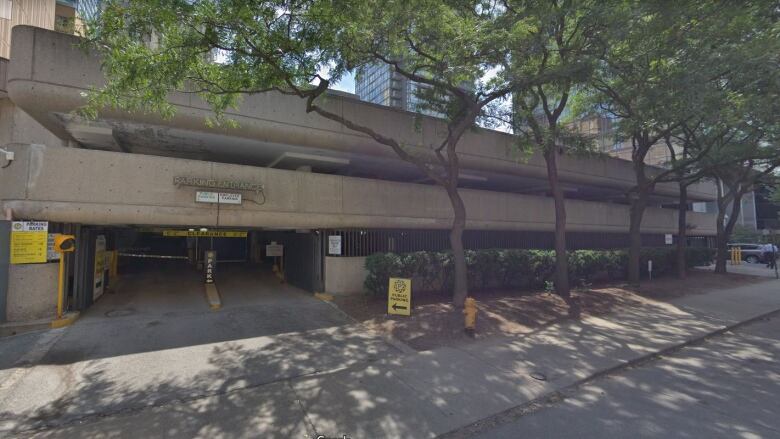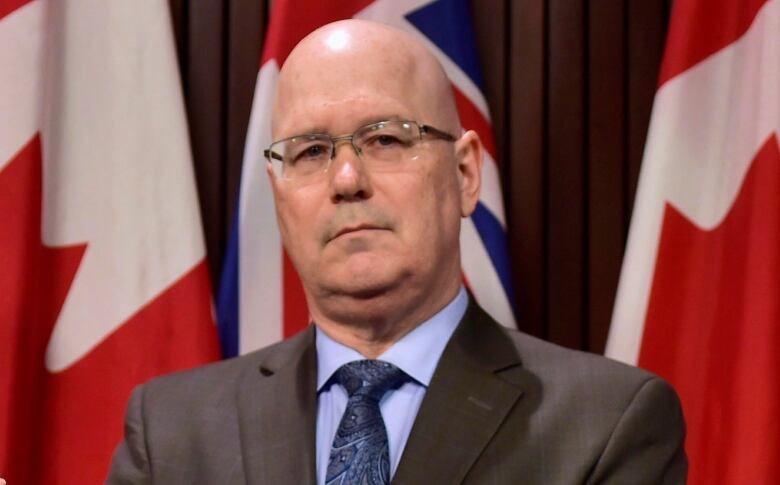Use surplus public lands 'more aggressively' to create affordable housing, researcher says
Report released same day Ontario announces sale of parcel of land in downtown Toronto

A Ryerson University researcher is calling on governments in Ontario to be more aggressive in using surplus public land to boost the supply of affordable housing.
Diana Petramala, is a co-author of a new report, "Governments in Ontario Making Headway in Using Surplus Lands for Housing."
Petramalaspoke to CBC Toronto on Monday, the same day the province announced the sale of a parcel of land in downtown Toronto partly for the construction of affordable housing.
She says political will is needed to improve the range of housing options in the province, but a "significant" amount of surplus public land is already available for redevelopment.
That land could be used to build affordable housing, if sold or leasedto developers at below market value, in exchange for the provision of affordable housing, she said.
"There's still a lot more room to do more," Petramalasaid. "A lot of this land offers the possibility of high density. You can get more housing units per parcel of land than you would from the private sector."
Vacant land could come from LCBO, TDSB
Petramala, senior researcher at Ryerson University's Centre for Urban Research and Land Development, said governments should identify vacant land owned by crown corporations and government agencies that could be used to create mixed-use communities.
In Toronto, for example, land for affordable housing could come from under-utilized or unusedLCBO and the Toronto District School Board buildings, she said.
"When you get full commitment from your city, you can achieve high levels of affordable housing."

Petramala said the need is great. "We have a huge wait list in terms of the number of people waiting for subsidized housing. Housing has become quite unaffordable in Ontario," she said.
"People who don't have homes put pressure on social services and that has a cost to it as well."
Province sells parcel of land in Toronto for $36M
Her report was releasedon the same daythe government of Premier Doug Fordannounced the $36-million sale ofa parcel of land in downtown Toronto, which includes 26Grenville St. and 27Grosvenor St., in part to make way for affordable housing.
The sale of the nearly one-acre property was initiated by the Kathleen Wynne government in 2017.
The government sold the land, near Yonge and College streets, for $36 million to Greenwin Inc. and Choice Properties REIT, Toronto developers that are proposing to build two towers on the site.
Currently, the properties include a low-rise parking garage and a building that formerlyhoused the Ontario chief coroner's office.
The development will have a minimum of 700 "purpose-built" rental units, of which 30 per cent, or more than 200 units, will be affordable rental housing for a period of 40 years, according to a news release by Greenwin Inc.
Stephen Johnson, President and CEO of Choice Properties, said in the Greenwin release: "Our intent is to create a landmark project that will make a positive contribution to the community."
According to Petramala's report, the site was sold at below market value to allow up to 844 rental units to be built. Of that number, 257 will be affordable rental units.

Revenue from the sale will help to fund government programs and will save the government $260,000 each year in operating and maintenance costs, the government and consumer services ministry said in a separate news release.
Minister says land given 'brand-new purpose'
Steve Clark, Ontario minister of municipal affairs and housing, saidthe sale of the land shows that the government is committed to creating affordable housing.
"We are giving this unused land a brand-new purpose and bringing much needed rental and affordable housing to Toronto's downtown core," Clark said in the governmentnews release.
"We will continue working with our municipal partners, non-profits, home builders and other experts to build more housing near transit and services so that everyone can find a home that meets their needs and their budget."
According to the Greenwin news release, the property was acquired as part of the Provincial Affordable Housing Lands Program, created to use provincial land assets for the development of market and affordable housing across Ontario.
Petramala, for her part, said the government could have asked for more affordable housing units as part of the sale.
"I would like to see their lands being used more aggressively for affordable housing," she said.
'There is still more room' for governments to act
In herreport, authored with Ryerson University professor David Amborski, she says: "While all levels of government have made a significant amount of surplus lands available for development, there is still room for opportunity."
The report says the best way for governments to increase the supply of affordable housing is to sell surplus public lands at below market value, or to lease the land, with the requirement that any redevelopment include affordable housing.
Among other things, the report calls on governments to:
- Draw up an inventory of public lands owned across the province.
- Identify under-utilized lands owned or leased by crown corporations and government agencies that could be used for mixed-use communities.
- Enable municipalities to weigh the costs and benefitsof selling publicland at market value versus selling at below market value in exchange for the provision of affordable housing.
The Ontario Real Estate Association and the Ontario Home Builders' Association financed the report.
Ford government is today touting the completion of the $36M sale of two provincial properties near Bay & Wellesley for affordable housing: https://t.co/KkHIx0e8Vq
Only fair to point out the sale was initiated in 2017 by the Wynne govt: https://t.co/smUvSy8M5c #onpoli
—@CBCQueensPark











_(720p).jpg)


 OFFICIAL HD MUSIC VIDEO.jpg)
.jpg)



























































































